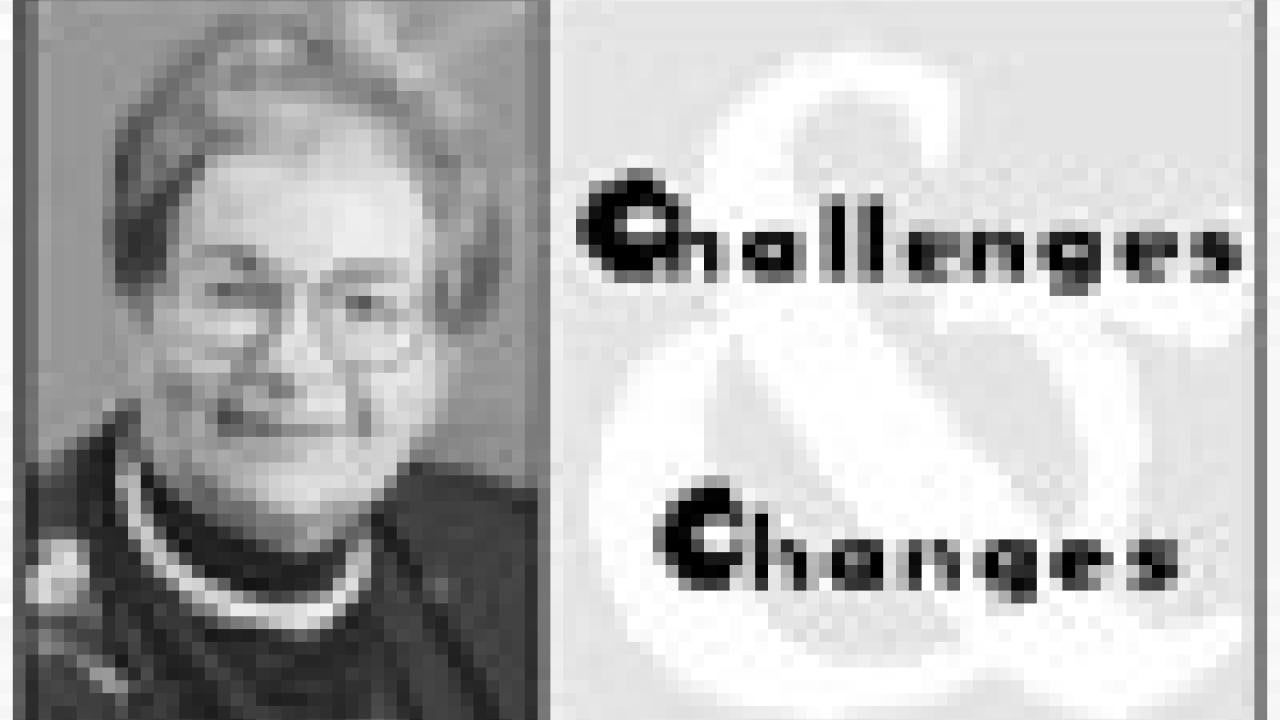Positive conflict. No, those two words are not an oxymoron. For some reason we have learned to use conflict only in its sense of battle or fight. This isn't surprising. According to my Oxford English dictionary, the derivation of the word comes from, "to strike together, to clash, contend, or fight."
However, at the risk of sounding trite, that's how we created fire, striking together a flint stone a little wood, etc. You could argue that without conflict there would be no creativity. It makes a certain amount of sense.
Certainly the idea that the world is round conflicted with the prevailing belief that it was flat. I don't want to imagine where we would be, if that discourse had not continued.
In her speaker's series talk, Anna Deavere Smith -- our campus community book project author (Twilight: Los Angeles, 1992) -- raised the idea that we were losing the art of this type of discourse, where conflicting ideas could be discussed civilly by reasonable people.
Now there's a scary thought. So, instead of talking only about resolving or managing conflict, I'd like to cast a vote for healthy conflict.
Now clearly, we need to learn to separate a clash of ideas from personal, cultural, political, etc. conflicts. For healthy conflict, we also need to understand that the goal is to learn and to grow, rather than to win or to lose. Certain individuals in cultures actually glory in and thrive on loud vociferous disagreements as ways of reaching consensus. For other cultures and individuals, only the most formalized type of debate is acceptable. For still others, disagreement may be seen as forbidden in certain situations.
In order to have healthy conflict, we need some rules around how to proceed.
The first rule might be to learn to choose your battles. If your perception of healthy conflict is simply to negate the ideas and thoughts of others, it is unlikely that you are really looking to learn. A good way to do this is to ask yourself, as a friend of mine used to do, what difference will this make in the cosmic sense of things?
Another, rule that comes from a light-hearted column on forgotten rules of life is: "If you are wrong, and, if you make a mistake, make amends immediately." Their reasoning is that it's easier to eat crow while it's still warm.
I think one of the hardest things for any of us to do is to respect alternative ideas while disagreeing with them. Too often we wish to dismiss the idea and often the person that bears it, rather than to learn more about it. Peter Senge, in a book written in the 1990s about organizations, introduced the idea of advocacy and inquiry as healthy organizational strategies for dealing with disagreements. He suggests that while you will certainly advocate for your own ideas, you have an equal obligation to inquire into the ideas of others.
This makes for a big difference in how we carry on what is referred to as a civil discourse.
But, if you would prefer a less altruistic reason for healthy conflict, studies on attitude change show that you are more likely to bring about change in your direction if you thoroughly understand the arguments of others.
While I am advocating for healthy conflict, for advocacy and inquiry, and for the clash of ideas, I want to make sure that we all understand that doing this requires a new skill set. It requires the willingness to hear what the other person has to say, rather than only convince the other person to see your perspective.
If you want to practice, give us a call at (530) 752-2727, or e-mail me at shharvey@ucdavis.edu.
You can also visit the Academic and Staff Assistance Program's Web site at http://www.hr.ucdavis.edu/ASAP.
Sally Harvey is director of ASAP. Her columns appear quarterly.
Media Resources
Amy Agronis, Dateline, (530) 752-1932, abagronis@ucdavis.edu
